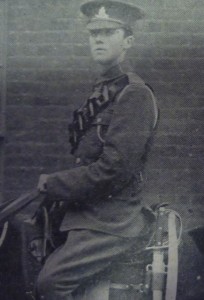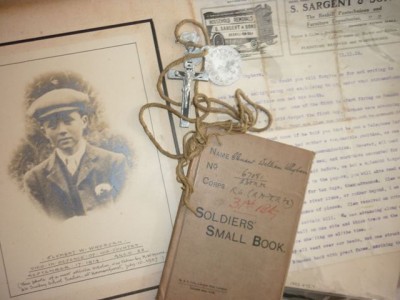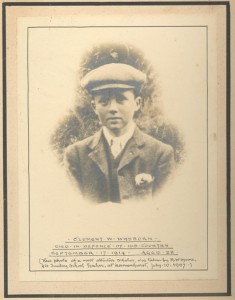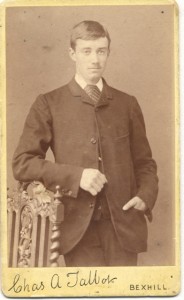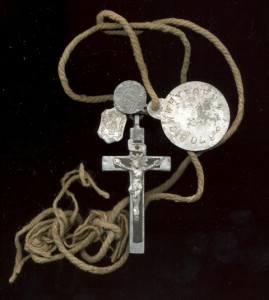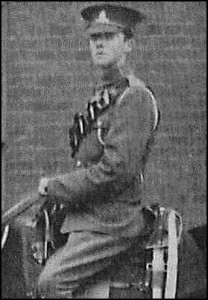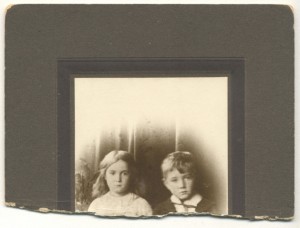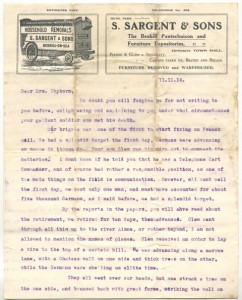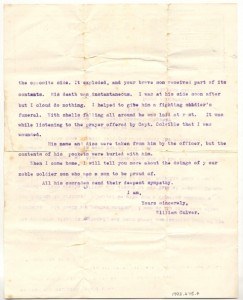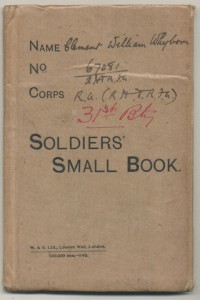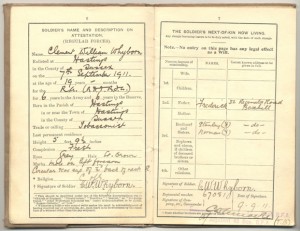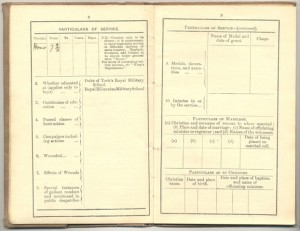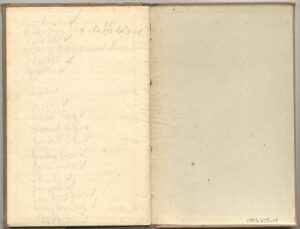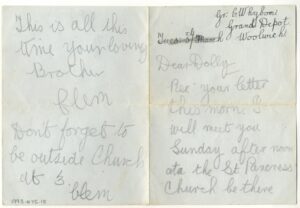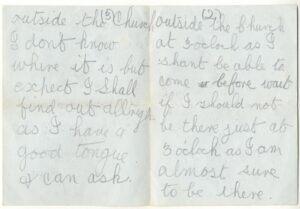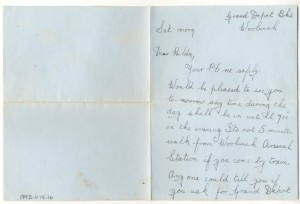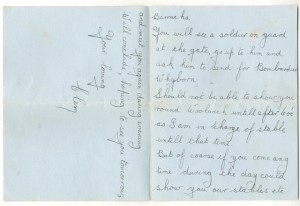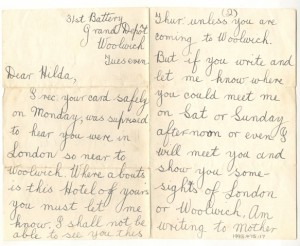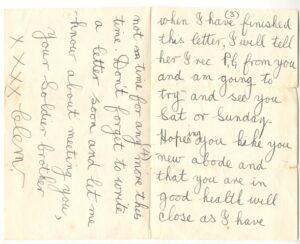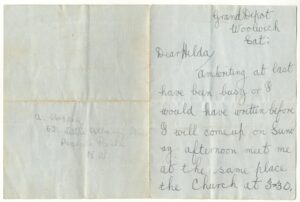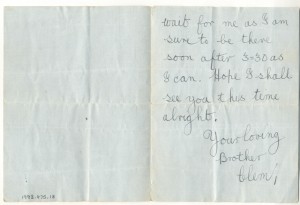Category: Military
Rank: Bombardier 67081
Regiment or Ship: 37th Brigade, Royal Field Artillery
Service Number(s): 67081
Occupation: Tobacconist
Date of Birth: 1893
Place of Birth: St. Leonards on Sea, East Sussex
Date of Death: 15.09.1914
Place of Death: Killed in action on The Marne.
Place of Burial / Memorials:
Clement’s final resting place is unknown. His name is on the La Ferte – Sous – Jouarre Memorial (France, Seine –et-Marne) which also lists the name of Private Fred Carey and a few other Bexhill Men. The memorial commemorates 3,740 men of the British Expeditionary Force who died at the battles of Mons, Le Cateau, the Marne and Aisne between the end of August and early October 1914 who have no known graves. He is also listed on Bexhill’s Town War Memorial.
Address: 72 Windsor Road, Bexhill
Photos and newspaper articles
Family Information
Father: Frederic William Whyborn, born 1866 in Bexhill, died 1924 in Battle. His occupation is listed in the 1901 Census as General Carman.
Mother: Anna Louisa Filmer, born 1871 in Rye, died 1961 in Hastings. They married in 1891 in Hastings.
Sister: Hilda Dorothy M Whyborn, born 1894 in Battle. Married George Mockford in 1919 in Hailsham and had two sons. George born 1920 in Ticehurst and Ronald born 1925 in Lewes.
Brother: Frederick Stanley Whyborn, born 1900 in Bexhill, died 18th April 1960 in Surrey. Frederick signed up in 1918 to the Bedfordshire & Hertfordshire Regiment. W0002 WHYBORN, Frederick Stanley (Private).
Brother: Norman Arthur Whyborn, born 1904 in Bexhill. Died in 1911, aged 7 years old after falling down a ladder.
Sister: Irene R Whyborn, born 1911 in Battle. Married Harold A Keen in 1934 in Lewes. They had 1 son called John born 1935 in Uckfield.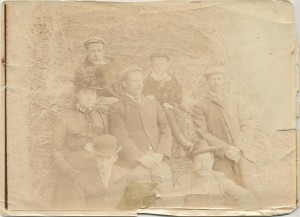
First World War Experience
Clement joined the army on 7th September 1911 aged 19 years old.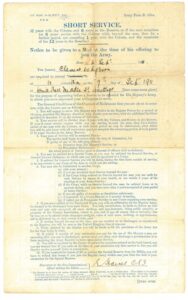
He served in the 31st Battalion 37th Brigade of the Royal Field Artillery. Sadly following the outbreak of the First World War, Clement became the first Bexhill man to die in the conflict. He died on 15th September 1914 aged 22 years old, while serving with the Expeditionary Force as a Telephone Cart Commander.
A few months later his mother received a letter from soldier William Culver who had been by Clement’s side when he died. In the letter Culver gave a detail account of Clement’s final days:
“Our brigade was one of the first to start firing on French soil. We had a splendid target the first day. Germans were advancing en-masse in thousands. Your son Clem ran his wire out to connect the batteries. I don’t know if he told you that he was a Telephone Cart Commander, and of course had rather a responsible position, as one of the main things on the field is communication. However, all went well the first day, we lost only one man, and must have accounted for about five thousand Germans, as I said before, we had a splendid target.
By the reports in the papers, you will have read about the retirement. We retired for ten days, then advanced. Clem went through all this up to the river Aisne, or rather beyond. I am not allowed to mention the names of places. Clem received an order to lay a wire to the top of a certain hill. He was advancing along a narrow lane, with a Chateau wall on one side and thick trees on the other, while the Germans were shelling us all the time.
They all went over our heads, but one struck a tree on the one side, and bounced back with great force, striking the wall on the opposite side. It exploded, and your brave son received part of its contents. His death was instantaneous. I was at his side soon after but I could do nothing. I helped to give him a fighting soldier’s funeral. With shells falling all around he was laid to rest. It was while listening to the prayer offered by Capt. Colville that I was wounded.
His name and disc were taken from him by the officer, but the contents of his pockets were buried with him”.
When his death was reported in the Bexhill Observer he was described as a “fine specimen of manhood” and had a “kindly and cheerful disposition” and was “greatly esteemed by all who knew him”. Before being sent to the Front he had been stationed at Woolwich and had managed to get home to Bexhill one Sunday afternoon to spend a few hours with his parents before going to France.
Clement was posthumously awarded the Victory Medal, British Medal and the 14 Star Medal.
Additional Information
The Museum holds a collection of artefacts and documents connected to Clement including his crucifix, dog tags, and photographs. There is also his Soldiers Book which is partly filled in and letters he wrote to his sister Hilda while he was stationed at Woolwich.
Soldiers Book:
Letters to his sister Hilda:
W0001 (19) WHYBORN Clement William (Bombardier) Transcriptions of letters to Hilda


